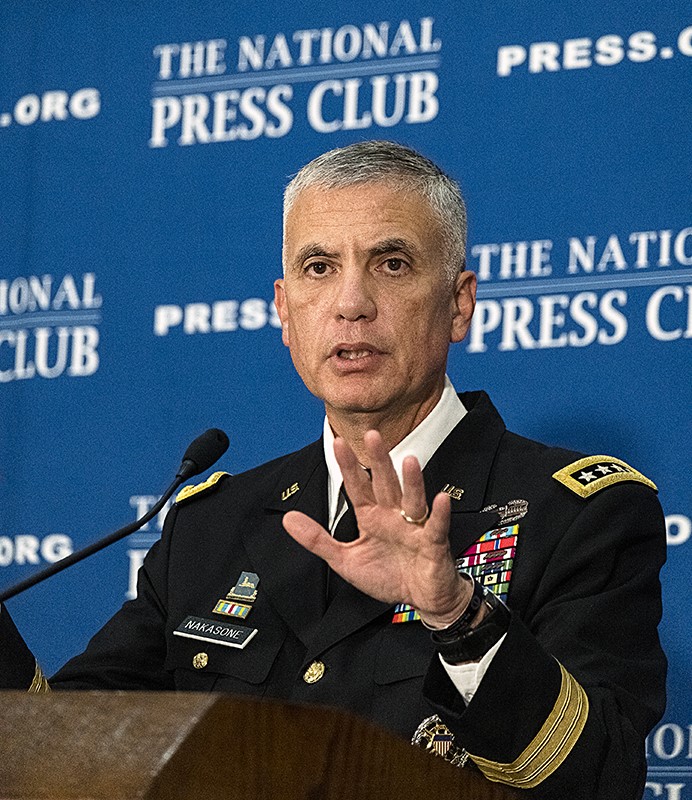NSA to create new Artificial Intelligence Security Center, its director announces at Club
Gen. Paul Nakasone, director of the National Security Agency, announced at a National Press Club Headliners Luncheon Thursday a new Artificial Intelligence Security Center to be housed within NSA and consolidate agency's various initiatives around the security of the new technology.
Nakasone, who is also commander of U.S. Cyber Command, said the new AI Security Center will become the focal point for NSA to leverage insights from foreign intelligence and help develop best practices, guidelines, principles, evaluation methodology and risk frameworks for AI security.

The end goal of the center is to promote the secure development, integration and adoption of AI within the nation’s national security systems and its defense-industrial base, Nakasone said. Businesses can also use the center to understand threats against their intellectual property.
Nakasone said the center is a “whole-of-government effort in conjunction with the private sector to ensure the U.S.’s enduring advantage in artificial intelligence. AI security is fundamental to that effort.”
AI has “enormous capacity to upend” various sectors of society, Nakasone said, including militaries, economies, international relations and technological growth. He said it is “essential” for the U.S. to maintain its position as a world leader in the technology, not take that advantage for granted and understand how its adversaries may use AI or prey on its vulnerabilities on these shores.
Already, the NSA is monitoring potential threats to the 2024 election, Nakasone said, adding that AI could be just one tool used by China, Russia, and others to destabilize the democratic process. For his part, Nakasone said he has yet to see any foreign interference in the nation's upcoming elections.
Also a priority for the NSA is the controversial Section 702 of the Foreign Intelligence Surveillance Act, which expires at the end of the year and needs congressional reauthorization. Section 702 lets the government collect the digital communications of foreigners who live outside the U.S. but lawmakers have said the power is too broad and could allow the government to run warrantless searches on its own citizens.
Nakasone said Section 702 is “essential” and added that it has been called the “most transparent surveillance authority in the world.” He said it has been vital in contributing to intelligence, as well as blocking efforts of foreign actors to smuggle fentanyl into the country.
“It has saved lives, protected U.S. interests, defended our warfighters overseas and contributed to our security and the security of our allies and partners around the world,” Nakasone said. He added that he is “very, very actively confident” that 702 will be reauthorized by Congress before the end of the year.
President Biden nominated Air Force Lt. Gen. Timothy Haugh, currently the deputy commander of Cyber Command at Fort Meade, Md., as Nakasone’s successor after he announced his retirement earlier this year. However, Haugh’s confirmation in the U.S. Senate has been stymied by Sen. Tommy Tuberville (R, Ala.), who, in a clash over abortion policy, has placed a hold on all military promotions.
But Nakasone pledged to continue serving until Haugh is confirmed, even if Tuberville’s promotions hold continues through November 2024 and beyond.
